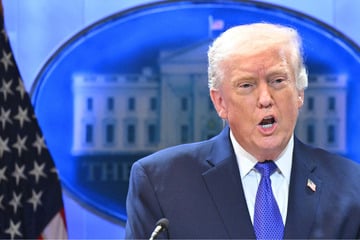Climate and environmental justice: Where do the 2024 presidential candidates stand?
Washington DC - Climate and environmental justice are a top priority for many voters as they prepare to hit the polls in the 2024 presidential election.
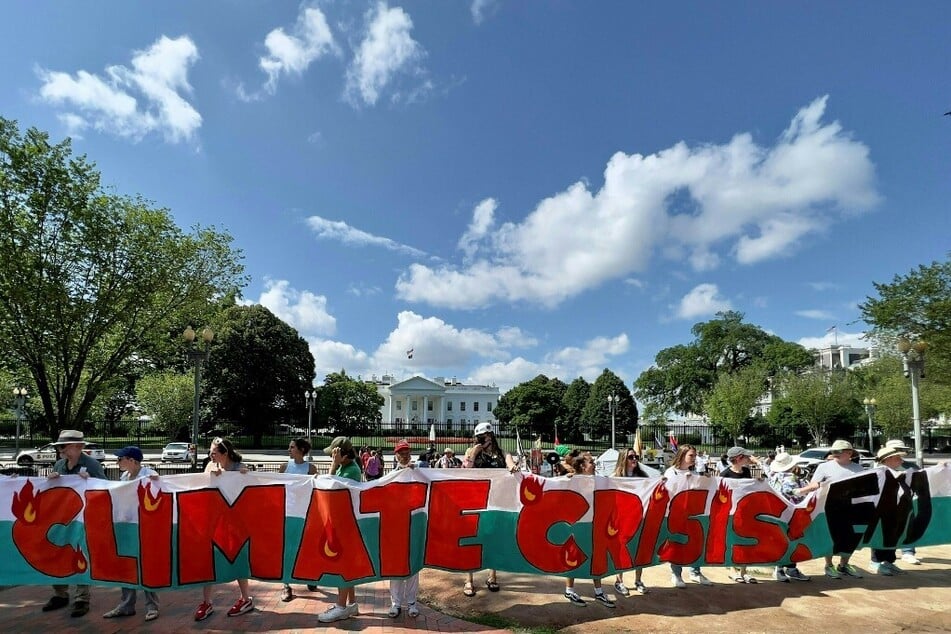
The US remains one of the world's top emitters of planet-destroying greenhouse gases, despite pressing alarms from scientists and impacted communities.
The World Meteorological Organization found that emissions of carbon dioxide, methane, and nitrous oxide reached record highs last year. The United Nations Climate Change Executive Secretary Simon Stiell, meanwhile, has warned that countries' national climate plans fall "miles short" of what is necessary to prevent the worst impacts of global warming.
Lives and livelihoods are at risk right now as polluting governments continue to kick the can down the road. Wildfires, hurricanes, flooding, droughts, extreme heat, and other climate-related disasters are occurring with greater frequency and intensity. Failure to rein in emissions is expected to result in increased food insecurity, public health threats, infrastructure collapse, and mass extinctions.
While everyone will feel the impacts of human-driven climate catastrophe, experts have warned that without policy change, historically marginalized communities and people of color will continue to be the hardest hit.
Given the urgency of the crisis, it comes as no surprise that many Americans, especially young voters, have identified the climate emergency as one of their top concerns in this year's presidential contest.
As the November election approaches, here is where the 2024 candidates stand on climate and environmental justice.
Looking for more 2024 election coverage? Compare what the candidates have to say about other key issues:
Kamala Harris – Democratic Party
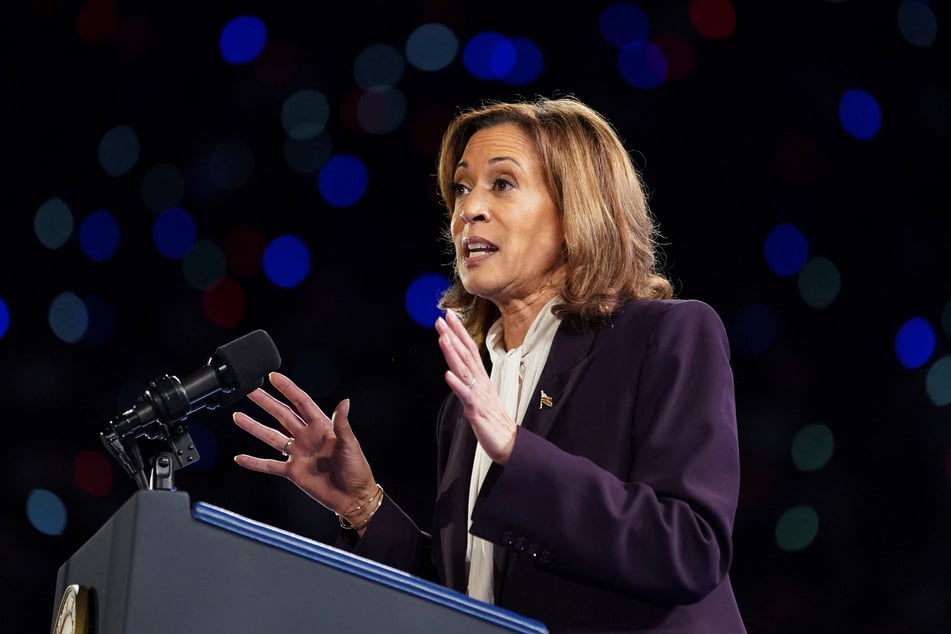
Democratic presidential nominee Kamala Harris' 2024 campaign has not laid out a detailed climate and energy policy plan.
In her New Way Forward for the Middle Class, Harris pledges to "lower household energy costs and create millions of new jobs, while tackling the climate crisis, protecting public lands and public health, and holding polluters accountable to secure clean air and clean water for all."
She and her running mate, Minnesota Governor Tim Walz, say they plan to do this by continuing to invest in clean-energy projects and constructing a lower-cost and more resilient electrical grid.
As vice president, Harris cast the tie-breaking vote in support of President Joe Biden's signature Inflation Reduction Act, which set aside nearly $370 billion in funding for clean energy projects and electric vehicles while mandating continued oil and gas drilling.
Since accepting the 2024 presidential nomination, Harris has been ambiguous on fossil fuels. She has publicly stated that she no longer supports a ban on fracking – a harmful method to boost oil and gas extraction that has been linked to water contamination, pollution, and negative health impacts.
Donald Trump – Republican Party
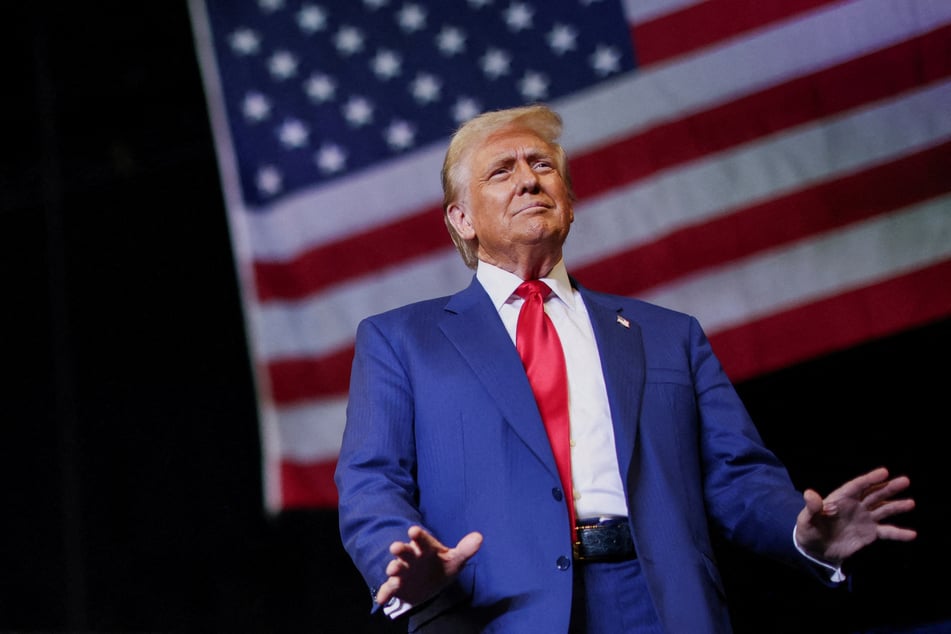
Republican presidential nominee Donald Trump's second White House campaign has sparked fears of irreversible climate damage should he win reelection.
During his first term in office, Trump pulled the US out of the 2020 Paris Climate Agreement and rolled back more than 125 environmental regulations.
Trump has cozied up to powerful people in the fossil fuel industry since announcing his 2024 bid. The ex-president reportedly met with oil executives at his Mar-a-Lago estate last April, promising to reverse Biden administration environmental regulations and urging them to raise $1 billion for his return.
On the campaign trail, Trump has vowed to ramp up fossil fuel production, in spite of scientific warnings, with repeated chants of "drill, baby, drill." He also wants to ban offshore wind projects and repeal measures designed to accelerate the electric vehicle transition.
Experts have warned the Republican may seek to eliminate US government consideration of carbon emission damages and curb the power of the Environmental Protection Agency to enforce pollution rules.
Jill Stein – Green Party

Green Party nominee Dr. Jill Stein has made transformative climate action a central tenet of her campaign for people, planet, and peace.
The eco-socialist presidential hopeful supports a Green New Deal to address worsening environmental disasters and their disproportionate impact on people of color. The plan calls for an end to fossil fuel extraction, a 100% clean renewable energy transition by 2030, and massive investments in green businesses and infrastructure.
Stein has said she will kickstart this transition by declaring a national climate emergency on Day 1 as president.
The Green Party candidate supports public ownership of the energy industry and railroad systems, the democratization of food production, as well as a constitutional amendment to guarantee the right to clean air, land, and water. She wants to ban pesticides, herbicides, and other carcinogens; rescind permits for the Line 3, Line 5, and Dakota Access Pipelines; and phase out plastics.
Stein has acknowledged US militarism, colonialism, and neocolonialism as key drivers of the climate emergency. She supports full funding of global climate reparations, as well as reparations to Black Americans for the crimes of enslavement and ongoing environmental racism.
She calls for the creation of a federal commission to deliver justice for residents of Louisiana's notorious Cancer Alley and a Land Back Commission for Indigenous Peoples.
Claudia De la Cruz – Party for Socialism and Liberation
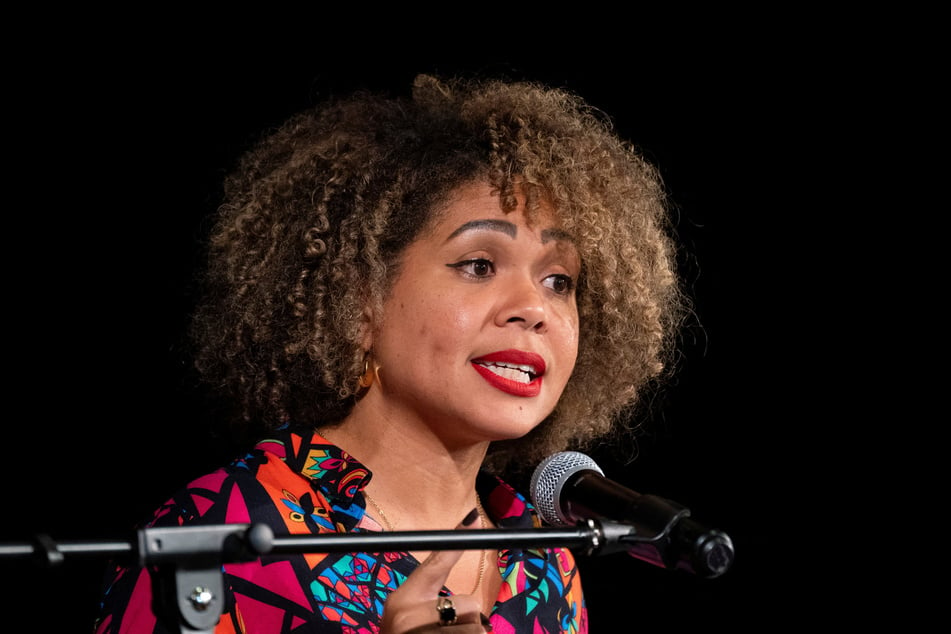
Party for Socialism and Liberation presidential candidate Claudia De la Cruz believes that we cannot address the climate crisis unless we do away with the capitalist system driving the planet's destruction.
De la Cruz's platform calls for the immediate public takeover of fossil fuel corporations in order to repurpose them for green energy production.
Land and technology held by agribusiness corporations would also be seized and redistributed to farmers in order to promote sustainable food production.
The Vote Socialist campaign calls for an expansion of public transportation powered by electricity.
On top of that, De la Cruz has emphasized the need to end US militarism, which is driving greenhouse gas emissions and worsening climate disasters at home and abroad. She supports reparations to communities that have suffered disparately from generations of colonialism and abuse.
The campaign says the socialist transition will create millions of good-paying jobs while saving the planet from capitalism.
Cornel West – Independent
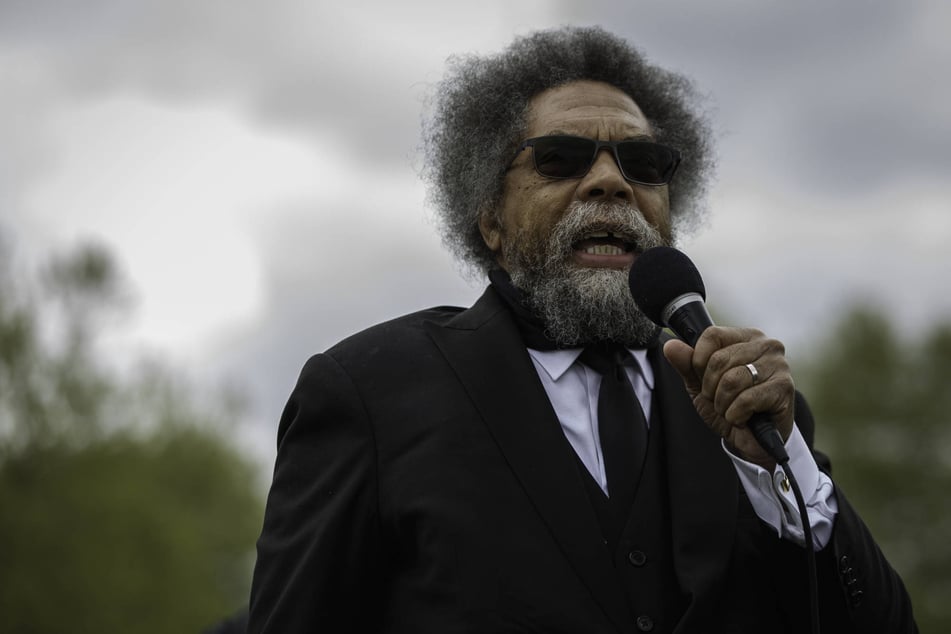
Independent presidential candidate Dr. Cornel West has proposed a Global Green Reconstruction Initiative with massive investments in renewable energy, housing, education, and jobs as well as a $27 federal minimum wage. The plan also calls for significant divestment from US military operations.
West's platform insists that all people should have the constitutional right to clean air, clean water, and a healthy environment. He endorses the declaration of a national climate emergency, the nationalization of the fossil fuel industry, and a halt to oil and gas projects.
The academic and activist sees the current climate emergency as a direct legacy of Western colonialism. He supports global climate reparations as well as reparations for Black-American communities facing the brunt of environmental racism at home.
West has affirmed Indigenous Peoples' right to exercise free, prior, and informed consent when it comes to decision-making processes affecting their lands, waters, and sacred sites.
Chase Oliver – Libertarian Party

Libertarian presidential nominee Chase Oliver acknowledges the US government to be one of the leading drivers of the global climate crisis.
When it comes to reining in ecological destruction, Oliver wants to pursue a "market- and community-based approach" rather than strengthened regulatory processes, according to his campaign website.
The platform lays out four main principles in the candidate's approach:
- Ending Wars and Supporting Peace
- Tribal Sovereignty and Property Rights
- Energy Independence and Resilience
- Ecologically Minded Deregulation
Oliver advocates the use of nuclear energy, as well as expanding solar and wind energy production.
The general election for president takes place on November 5, 2024. Find your nearest polling site, and get ready to cast your ballot!
Cover photo: Daniel SLIM / AFP
